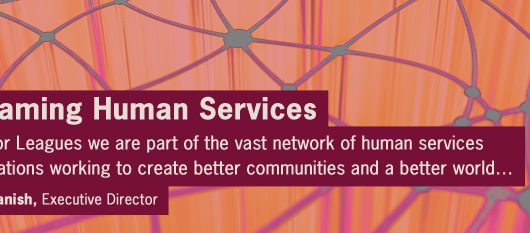FROM SANTA CLARA, CUBA TO BUFFALO, N.Y.: A LONG ROAD TO ADVOCACY
Junior League of Buffalo member and former AJLI President Clotilde Perez-Bode Dedecker journeyed from Cuban refugee to naturalized U.S. citizen and championed education for underprivileged students.
In 1967, when Clotilde Perez-Bode Dedecker was eight, she and her parents prepared to board a flight to the U.S. where they would begin a new life as Cuban exiles. Her grandfather’s chauffeur had climbed a tree with a pair of binoculars to watch them cross the tarmac. When Dedecker draped her favorite doll over her shoulder to signal the family’s safe boarding—separations and detentions were common—the chauffeur was able to report back to her grandfather, who would remain in Cuba.
After a brief stop in Miami, the family settled in Buffalo where Dedecker’s father, a dentist, could revalidate his license at the university.
‘’We arrived in this country with $10 hidden in my brother’s bow tie,’’ she told Elisabeth Bumiller of The New York Times in an interview 30 years later.
They were resettled by Catholic Charities, which for the next two years was their safety net. The experience lies at the root of her conviction about the importance of voluntarism.
Eventually Dedecker graduated from nearby Canisius College and began teaching Spanish and science. Nearly 20 years later she would obtain her Master’s in Education at the State University of Buffalo, the same institution that enabled her father to practice dentistry in the States.
In between her educational pursuits, she toured a Junior League of Buffalo-sponsored show house and joined in 1983. She served as her League’s President and later as an AJLI Area Representative before being elected Association President for the 1998 to 2000 term. She was the first Hispanic to do so. Later she received a White House appointment to the President’s Council on Service and Civic Participation and co-chaired the U.S. Committee of the United Nations International Year of the Volunteer.
“It’s like getting a Master’s in community leadership,” she says of her League experience. “The League gave me the skills that allowed me to serve. I loved meeting other professional women who cared about personal development in the service of community.”
 Over the years the Cuban-exile-turned naturalized-U.S.-citizen honed her advocacy and leadership skills by championing many causes. She established a family justice center for victims of domestic violence and helped found the Women’s Foundation and the Literacy Funders Network.
Over the years the Cuban-exile-turned naturalized-U.S.-citizen honed her advocacy and leadership skills by championing many causes. She established a family justice center for victims of domestic violence and helped found the Women’s Foundation and the Literacy Funders Network.
In 2007, she was appointed President and CEO of the Community Foundation for Greater Buffalo, a 95-year-old 501(c)3 public charity known for leading social change while overseeing more than 750 different funds.
Her current mission is the reform of the secondary education system in her city’s public schools.
Eighty-two percent of its children receive eitherfree or reduced-rate lunches; 1,200 to 1,500 are international refugees; and 77 percent are students of color.
In addition, the once majestic city was named the third poorest in the United States according to a U.S. Census Bureau report released in 2009, and within the last few years fewer than 50 percent of Buffalo students have graduated from high school.
“The most severe threat to our nation is the challenge of urban education,” she says. “If our youth are educated, they can succeed and so will our country.”
Dedecker brokered the agreement that brought the national initiative Say Yes to Education to Buffalo, making it the second municipality to pilot the program. The collaboration brings together the Buffalo Public School District, higher education, the Buffalo Teachers’ Federation, the Buffalo Association of Administrators and Supervisors, the City of Buffalo, Erie County, Say Yes to Education, Inc. and other corporate, non-profit and philanthropic organizations. Together they provide holistic, year-round support to Buffalo Public School District students throughout their K-12 years and beyond.
Dedecker believes the Buffalo metropolis—studded with marvels by Frank Lloyd Wright and Frederick Law Olmsted and once a crucial center of trade on the western end of the Erie Canal—is ripe for such an initiative, consisting as it does of 21 colleges and universities including SUNY Buffalo, the biggest in the SUNY system.
IT’S LIKE GETTING A MASTER’S IN COMMUNITY LEADERSHIP. THE LEAGUE GAVE ME THE SKILLS THAT ALLOWED ME TO SERVE.
Providing academic, social, emotional, healthcare, mental healthcare, coaching and legal support for all Buffalo schoolchildren, it also covers up to 100 percent of a student’s tuition for post-secondary education, a prospect that Dedecker calls a “compelling incentive for academic achievement.”
To date, Say Yes has received $19 million in private funding. With nearly 1,000 students from the first graduating class in 2013 attending college, the program posted a nine percent increase in college matriculation, the district’s highest ever.
“This is an indicator of success,” says Dedecker of the data-driven initiative that encompasses 34,000 students and 55 buildings; spans a five-year rollout; and now counts 50 percent of schools among its participants.
The partnerships that gird the Say Yes Buffalo initiative with investments of technical assistance, scholarship and seed funding typify the foundation necessary to get such an ambitious program off the ground.
“The most important thing is the power of relationships,” she says. “They are the fulcrum of community.”
All of her achievements aside, Dedecker says the best moment in her League career was receiving the email from her daughter, letting her know that she had joined The Junior League of the City of New York.

